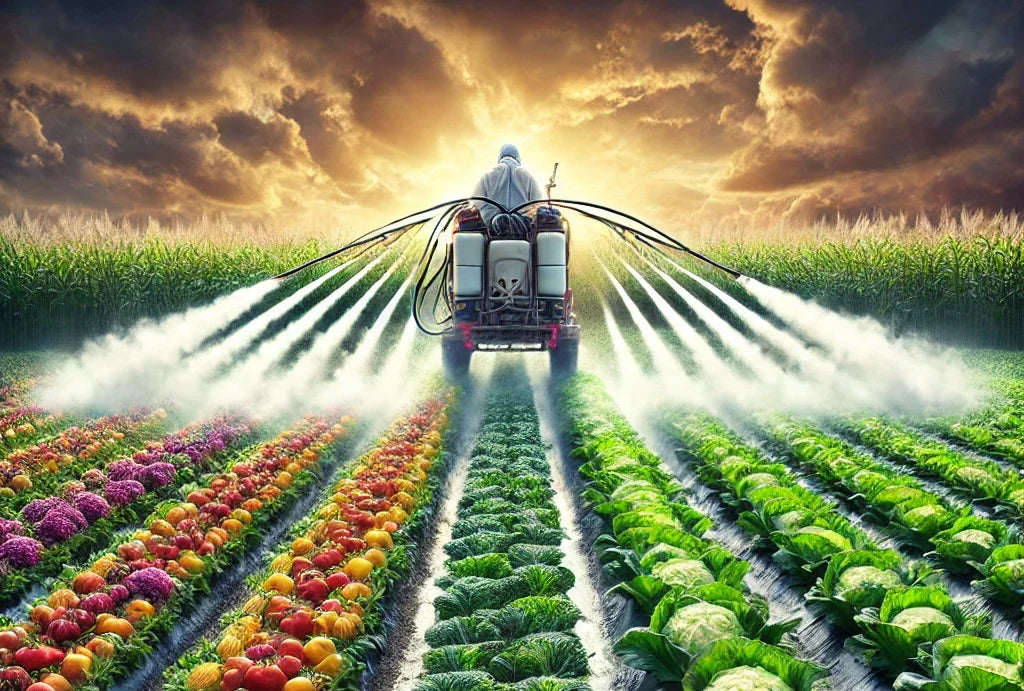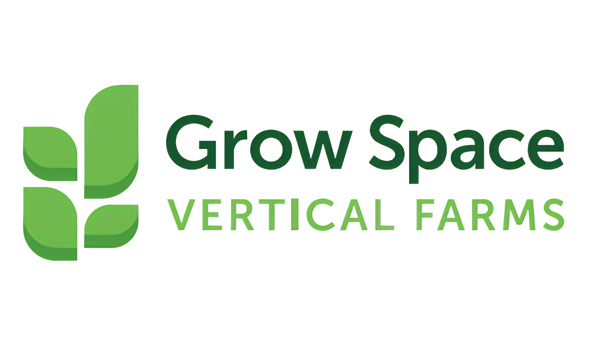
Why Chemical-Free Produce Is Better for Your Health and the Planet
Share
In today’s world, it’s easy to feel overwhelmed by all the choices when it comes to food. Is organic worth it? Do I really need to care about chemicals in my produce? The short answer: yes—especially if you’re looking for ways to protect your health and the environment.
At Grow Space Vertical Farms, we’re passionate about growing produce that’s not just fresh and delicious but also free from harmful chemicals. Here’s why choosing chemical-free produce can make a big difference for you and your family.

The Hidden Risk of Harmful Chemicals
Consumer Reports recently analyzed chemical use in fruits and vegetables, and the findings were eye-opening. While most produce in the U.S. is considered safe, a small percentage contains worrying levels of toxic residues. Many of these substances, such as organophosphates and carbamates, were initially banned decades ago but have resurfaced in modern farming.
For example:
-
Strawberries and green beans imported from certain countries were flagged for their high chemical residue levels.
-
Some substances, like acephate, are prohibited in the U.S. but still find their way into imported produce.
-
Even with regulations in place, harmful chemicals can still sneak into your diet—especially if you don’t know where your food comes from.
Does Washing Produce Help?
Washing fruits and vegetables is essential, but it doesn’t eliminate all chemical residues. Some substances are systemic, meaning they’re absorbed into the plant and can’t simply be rinsed off. Peeling may reduce exposure, but it also removes valuable nutrients.
What does this mean for you? To truly minimize your exposure, choosing chemical-free or organically grown produce is one of the most effective steps you can take.
Why Choose Chemical-Free?
Choosing chemical-free produce isn’t just about avoiding toxins—it’s about choosing a better way of growing food. At Grow Space, our approach:
-
Reduces environmental harm by protecting pollinators and local water sources.
-
Promotes soil and plant health, even in our soil-free, vertical systems.
-
Minimizes your exposure to harmful residues while maximizing freshness and nutrition.
We go beyond organic. Our greens are cultivated in a controlled indoor environment, using clean, sustainable methods that ensure consistent quality and year-round availability.
Not All Produce Carries the Same Risk
It’s worth noting that some fruits and vegetables are more susceptible to absorbing chemicals. Leafy greens, berries, and soft-skinned produce tend to have higher risks, while thicker-skinned options like bananas and avocados are naturally more resistant. If you're just starting out, focus on high-risk items like spinach, strawberries, and bell peppers.
How to Save on Chemical-Free Produce
We know cost can sometimes be a concern when making healthier food choices. Here are a few tips to help:
-
Buy in Season: Seasonal produce is often more affordable and packed with flavor.
-
Shop Direct: Buying from local farms (like ours!) cuts out the middleman and adds transparency.
-
Prioritize Wisely: Start with chemical-free versions of the highest-risk produce for the most impact.
At Grow Space, we aim to make clean, chemical-free greens accessible to everyone. Whether you’re picking up crisp romaine or nutrient-dense microgreens, every bite is grown with care—without shortcuts.
Why Grow Space?
When you choose chemical-free produce from Grow Space Vertical Farms, you’re doing more than feeding your family better—you’re supporting a more sustainable food system. Our innovative vertical farm grows clean, flavorful greens year-round, using a fraction of the resources required by traditional farming.
Plus, with flexible pickup or delivery options, enjoying the freshest local greens has never been more convenient.
Take the First Step Today
Switching to chemical-free produce doesn’t have to be all or nothing. Start small: replace a few high-risk items or try one of our fresh, local bundles. Over time, those small steps can lead to big benefits—for your health, your family, and the planet.
